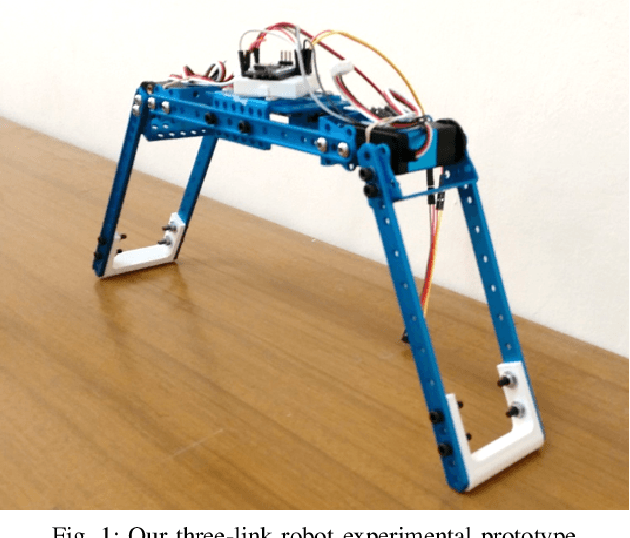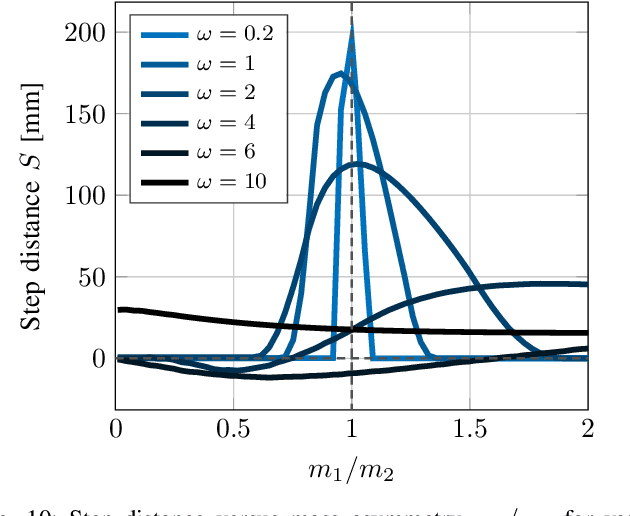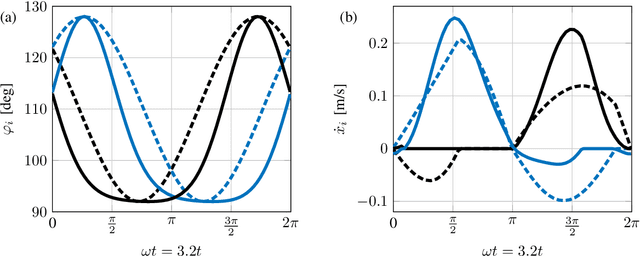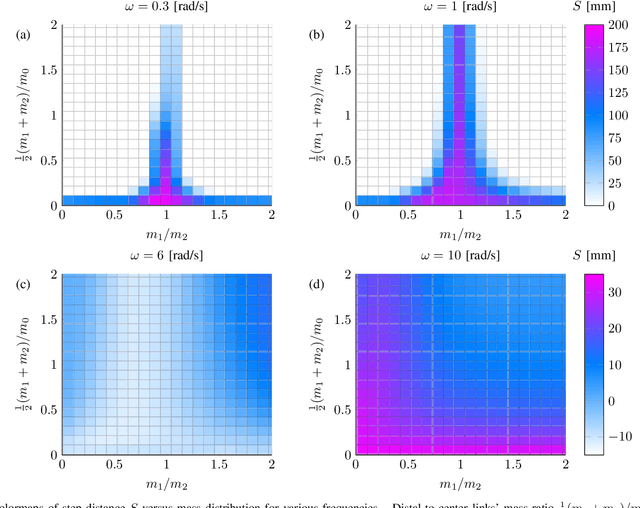Inertial Inchworm Crawling
Paper and Code
Jun 03, 2020



Inchworm crawling allows for both quasistatic and dynamic gaits at a wide range of actuation frequencies. This locomotion mechanism is common in nonskeletal animals and exploited extensively in the bio-inspired field of soft robotics. In this work we develop and simulate the hybrid dynamic crawling of a three-link robot, with passive frictional contacts. We fabricate and experimentally test such robot under periodic inputs of joints' angles, with good agreement to the theoretical predictions. This allows to comprehend and exploit the effects of inertia in order to find optimal performance in inputs' parameters. A simple criterion of robustness to uncertainties in friction is proposed. Tuning the inputs according to this criterion improves the robustness of low-frequency actuation, while increasing the frequency allows for gaits with both high advancement velocity and robustness. Finally, the advantages of uneven mass distribution are studied. Time-scaling technique is introduced to shape inputs that achieve similar effect without reassembling the robot. A machine-learning based optimization is applied to these inputs to further improve the robot's performance.
 Add to Chrome
Add to Chrome Add to Firefox
Add to Firefox Add to Edge
Add to Edge